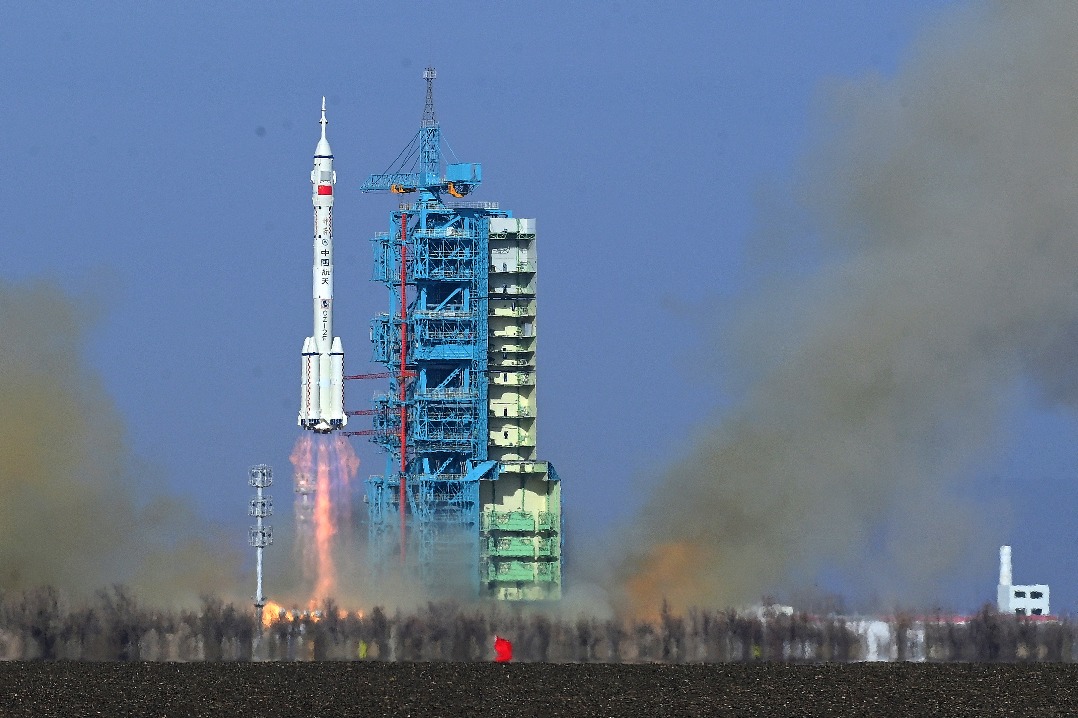AI tool can help enhance crop varieties
Researchers develop model that could address a bottleneck in plant breeding

A Chinese research team has developed a deep-learning framework that could accelerate the intelligent design of crop varieties, giving plant breeders a new tool to predict gene expression with high accuracy across tissues and cultivars.
The model, named DeepWheat, was created by the wheat gene resource innovation team at the Institute of Crop Sciences of the Chinese Academy of Agricultural Sciences. The findings were recently published in the journal Genome Biology.
Wheat, which carries three sets of genomes and is remarkably large — about 40 times the size of the rice genome and even five times the size of the human genome — has long challenged scientists trying to understand how genetic variations influence gene expression across tissues and developmental stages. Experts say accurate prediction is crucial for designing elite varieties and uncovering the mechanisms behind key agronomic traits.
To address the complexity, the research team built two complementary core models and combined them into a dual-model deep-learning framework. DeepWheat can identify how specific regulatory variations alter gene expression in different tissues and forecast tissue-specific patterns with high precision.
Lu Zefu, a chief scientist on the team, said the model is particularly valuable because many important crop genes are pleiotropic, meaning they influence multiple traits and can produce both positive and negative effects depending on where, when and how strongly they are expressed.
"For example, the IPA1 gene in rice promotes bigger panicles when moderately expressed in young panicles, but higher expression in tillers, on the contrary, reduces tiller numbers," Lu said. A panicle is a branching cluster of flowers on a plant, while a tiller is a shoot that arises from the base of a grass plant.
Lu added that current genome-editing approaches still rely heavily on trial and error, often requiring researchers to edit every possible regulatory site to see what works. "This is labor-intensive, blind and often unpredictable," he said.
DeepWheat offers a more targeted and efficient alternative. By building tissue-specific models and running virtual saturation mutagenesis — computer simulations that test all possible genetic variants — researchers can identify which regulatory changes are most likely to produce the desired expression pattern. "Only then do they proceed with real-world editing, greatly improving precision and reducing wasted effort," Lu said.
According to the team, the framework can also be applied beyond wheat, with successful tests in rice and maize. Its ability to pinpoint key regulatory elements, optimize genome-editing targets and predict tissue expression outcomes provides a scientific basis for gene redesign, Lu said.
This capability could help address a major bottleneck in plant breeding: trait antagonism, in which improving one trait inadvertently weakens another because of conflicting genetic controls. "By enabling fine-tuned reconstruction of regulatory networks, DeepWheat could lower such trade-offs and speed up the combination of desirable traits," he said.
The tool represents a practical AI solution for crop improvement, giving plant scientists a powerful new way to accelerate the development of high-performance varieties, he said.
- AI tool can help enhance crop varieties
- Shanghai police expose luxe car insurance scam
- SPC asks courts to target dual contracts to curb tax evasion
- Harbin's winter wonderland takes shape with record use of ice and snow
- Domestic violence cases have declined since 2021
- National Games fuel cross-boundary travel in GBA





































